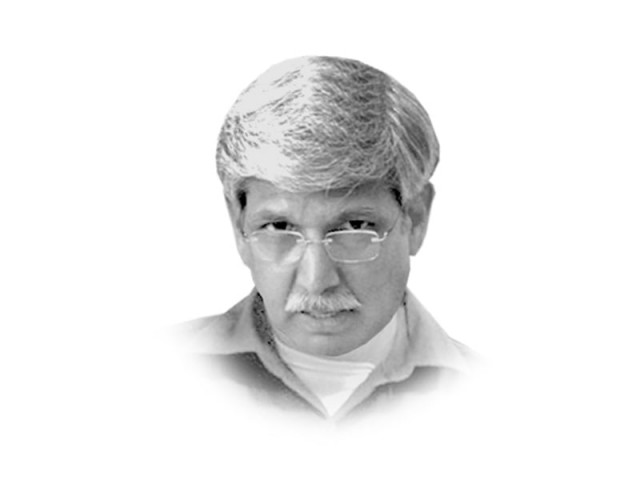What holds us back
We are not bad as people, but in dealing with matters of state, we have let the bad envelop us as defining attribute.

But then, we also remain petulantly reticent to share with others of what we believe in and in what we do, or why. That makes the world think that we are devious, even when such capital at hand for us to exercise deviousness or its subordinate manifestations has mostly been abysmally low. Usually nations with significant capacities alone can be as luxurious in their choices. We have believed in creating space not through some hard-nosed diplomacy but through classical doublespeak, even when we have known that our real disposition is always closer to what is right and what will serve the larger interest of everybody. To seek altruistic ends, we exercise chicanery as the glorified form of diplomacy. Steeped in heaps of missteps and the consequential ignominy, as a leadership has blundered from one crisis of image to another, we have let such diabolism internalise to the point of reflecting our central characteristic as a nation.
We are not bad as people, but in dealing with the matters of the state, we have let the bad envelop us as the defining attribute and thus defiance becomes our instinctive response when challenged on our state’s perceived craftiness. The point is, we are not bad; our ways are bad and we need to do something about it. We have a story, but we are inept at telling it to others. In fact, we are so taken in by chicanery as the form of how a state validates its disposition that we easily fall into the trap of defending such disposition with further charlatanism.
Like I said, we have a story; we just don’t tell it. Between India and Pakistan, Mumbai 2008 holds the key to determining where this relationship will go. We have both a weak and a strong case on Mumbai; but we live in inexplicable serenity of disinterest, even when India has gone to town with painting Pakistan as a nation given to violence as the only arbiter. We get easily taken in by the bonhomie and conviviality of a bilateral interaction, but change the scene to a third-country presence and see the Indian delegates go ballistic in their venomous viciousness to paint Pakistan in worse light. Pakistan, then, only defends and deflects, even with a reasonable narrative on the holes in the Indian case, and on how law will judge evidence. But no, while with the Indians we appease their sense of grief subscribing to the ‘mitti pao’ doctrine of Chaudhry Shujaat Hussain, what drives our friends across the border is ‘the Parthasarthy doctrine’, which says, rub the Pakistanis so bad in the dirt that it might take them generations to recover from infamy and disgrace.
India seeks bilateralism to resolve disputes but has gone to the world in Mumbai, heaping abuse on Pakistan, violating exactly the same principle. We have failed to engage the world on this more sensitive allegation that purports to define Pakistan as a sponsor of terrorism. Our legal wizards need to take up the obvious inadequacies in India’s legal standing on Mumbai and its unwillingness to put its stance to such legal scrutiny. Instead, we remain bedevilled by a reductionist parsing of the issue of our image to a simplistic civil-military connotation where instead of fighting the external effort to demean Pakistan, we thrive on our evening talk shows to defile the military instead. In our restrictive liberal definition, we eschew nationalism as a counter-thesis to liberal values.
Pakistan’s case on Mumbai is both strong and weak: Mumbai happened; the perpetrators sailed from Pakistan; and we failed to stop them. But so is India’s. She has chosen instead to trade the legal weaknesses in her case for political benefit by demeaning a competitive neighbour by touting superior moral mantle and making cause of a tragedy. For Pakistan, that generates an immediate imperative to contend against, even while we fight the inner front. We haven’t done well at all in this regard.
Ditto with Haqqani, or North Waziristan. We have let ambiguity run our course as a nation. The quiet is deafening, reinforcing the presumptions that the world makes of us. We have a clear stance on both these issues but choosing to remain ambiguous will only cause a festering sore to become a haemorrhaging disability. Oblivious to the bile that piles, we remain mired in our internal shenanigans. On a sinking ship, the need is to plug the hole, not go about determining who caused it.
Published in The Express Tribune, August 13th, 2012.















COMMENTS
Comments are moderated and generally will be posted if they are on-topic and not abusive.
For more information, please see our Comments FAQ